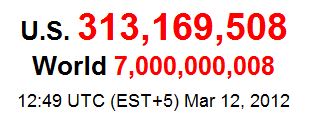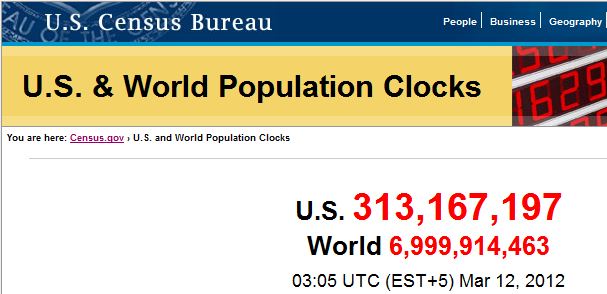The United Kingdom has no Constitutional prohibition against established religion; in fact, the head of state is also the head of the church. But the UK has a much deeper secular grain than we have, to the extent that many people in the country get quite exercised about even public prayer. The Washington Post explains the latest row:
Local lawmaker Clive Bone, an atheist, was backed by four of his peers in challenging the long-standing tradition of opening public meetings with blessings by Christian clergy. After losing two council votes on the prayer ban, Bone took the town to court — winning a ruling last month that appeared to set a legal precedent by saying government had no authority to compel citizens to hear prayer.
Bone, a transplanted Londoner and retired management consultant who has given up his seat on the council, said: “This isn’t about freedom of religion. I will defend their right to pray in their churches to my dying breath. Just don’t make us listen to it anymore. It is a backwards tradition that alienates people in this country.”
Most people I know in the UK say religion is entirely private, and would likely be offended at having to listen to prayers at minor public meanings. It's yet another example of how really out of step the rest of the Western world are with us.
As I mentioned last night, the U.S. Census Bureau uses a different algorithm to estimate world population than the U.N. So despite all the stories last October about the U.N.'s population estimate hitting 7 billion, the Census estimate hit 7 billion...about 20 seconds ago:

Thanks for playing. Check back in about 12 years for the 8th billion mark.
Back in October, the United Nations declared that the world population had hit 7 billion. The U.S. Census Bureau, however, believes differently. Here are the World and U.S. population clocks from a moment ago:

So, as far as the Census is concerned, we'll hit 7 billion tonight sometime.
That the Census didn't update its estimates to match the U.N.'s suggests they're confident of their more conservative model.
Atlantic Cities contributor Feargus O'Sullivan reports from London on the city's preparations for, and apprehension about, this summer's games:
As a recent survey by pollsters ComRes showed, public ambivalence still reigns, with only a third of respondents agreeing that the Olympics were worth the money. Londoners in particular are anticipating the games with more dread that excitement. With a heavy tax bill and an already stretched transport system, it’s easy to see why they’re feeling curmudgeonly. The city’s roads are routinely clogged as it is, and many fear planned Olympic lanes for athletes and VIPs on major routes will make congestion unmanageable, driving people out of cars and into a temperamental subway system that already makes the average sardine can look roomy. Add to this London’s role as a prime target for international terror and you’re looking at a long hot summer of tension and stress.
But while some fear that the games will make the city a living hell, others are predicting the opposite – that Olympic price hikes will leave London empty and that tourist revenues will plummet. In December, the European Tour Operators Association warned that the games are already deterring regular sightseers, with hotel bookings down by a fifth compared to the same period last year. Musical theater composer Andrew Lloyd Webber, meanwhile, has said advanced bookings for London’s theaters are so bad for the summer that the sector “faces a bloodbath." Given these two contradictory extremes of anxiety, it’s hardly surprising that the official response to such pre-games jitters has been one of bullish confidence, with London’s eccentric mayor Boris Johnson memorably dubbing Olympic skeptics “Gloomadon poppers."
I, for one, plan to avoid London from June to September this year. But I'm going next week, and while there I'll check out the stadium and the public's mood. Remember, many of us Chicagoans didn't want to bid on 2016 because of the mess we thought it would bring to our city. Let's see how London does.
The Atlantic's Jeffrey Goldberg spent 45 minutes with President Obama this week. The President laid out his thoughts on Israel and Iran, and reminded us why we voted for him:
President Obama: I think that the Israeli government recognizes that, as president of the United States, I don't bluff. I also don't, as a matter of sound policy, go around advertising exactly what our intentions are. But I think both the Iranian and the Israeli governments recognize that when the United States says it is unacceptable for Iran to have a nuclear weapon, we mean what we say. Let me describe very specifically why this is important to us.
[A]s Israel's closest friend and ally, and as one that has devoted the last three years to making sure that Israel has additional security capabilities, and has worked to manage a series of difficult problems and questions over the past three years, I do point out to them that we have a sanctions architecture that is far more effective than anybody anticipated; that we have a world that is about as united as you get behind the sanctions; that our assessment, which is shared by the Israelis, is that Iran does not yet have a nuclear weapon and is not yet in a position to obtain a nuclear weapon without us having a pretty long lead time in which we will know that they are making that attempt.
In that context, our argument is going to be that it is important for us to see if we can solve this thing permanently, as opposed to temporarily. And the only way, historically, that a country has ultimately decided not to get nuclear weapons without constant military intervention has been when they themselves take [nuclear weapons] off the table.
It's a long interview, but one worth reading. And I think it sends a clear message to Israeli Prime Minister Binyamin Netanyahu: don't go rogue on this.
Via Viennese news aggregator Eurozine, an analysis of Vladimir Putin's "managed democracy":
Elections were of critical importance for Putin not only for the sake of legitimacy, but also for the sake of governability. Putin could not have governed for the past decade without the ritualized authorization provided by rigged elections.
Thus, by far the most important political role of sham elections during the past dozen years has been the way they have allowed Putin to display his capacity for manipulating them in an orderly and predictable way and thereby, paradoxically, to demonstrate his authoritarian credentials. Rigged elections, known to be rigged, are the cheapest and easiest way for the regime to mimic the authoritarian power it does not actually possess and thereby to bolster its faltering grip on the country, or at least give itself more breathing room.
By engineering rigged elections that nobody bothered or dared to protest, Putin managed to conceal his regime's deepest secret, namely that Russia, rather than being misgoverned, is governed very laxly if at all. Contrary to the predominant view, Putin's real power has never extended much beyond Moscow. Russia's strongman has been strong enough to prevent anyone from aspiring to replace him; but he has spectacularly failed in his attempts to rule his country.
Truly strong, legitimate leaders can win elections on the merits, as we've demonstrated off and on for almost 230 years in the U.S. But as much as Putin rigs his elections, at least he's not Turkmenbashi.
Today is Red Army Day, and one of my co-workers mentioned her Russian friends have posted on Facebook about it. This turned into a discussion of the differences between the Soviet and Russian national anthems (there isn't much), which then went to Germany. In looking for a YouTube video of the German anthem, I encountered this:

Really? The video in question has a performance of the 1841 version ("Deutschland über Alles"), but presents it as an historical fact rather than as a political aspiration. This might offend people? Who are these people?
The German national anthem, "Deutschlandlied," takes its music from Hungarian composer Josef Haydn's "Emperor" quartet, Op. 76 No. 3, with lyrics penned by August Hoffmann in 1841—30 years after Haydn's death. These days Germans only sing the third verse (the second verse praises German women, another controversy apparently); but despite widespread ignorance, the first two verses were not written by the Nazis.
So, on what grounds is this offensive?
Let's see if historical versions of current national anthems are offensive in the U.S. Here is the 1770 text of the U.S. national anthem:
To Anacreon in Heaven, where he sat in full glee,
A few sons of harmony sent a petition,
That he their inspirer and patron should be.
When this answer arrived from that jolly old Grecian:
Voice, fiddle and flute no longer be mute,
I’ll lend you my name and inspire you to boot,
And besides I’ll instruct you like me to entwine
The myrtle of Venus with Bacchus’ vine."
So, who's offended? Anyone?
Maldives, an archipelago of 400,000 people with less than twice the area of Washington, D.C., has overthrown its government:
The ex-president of the Maldives said on Wednesday that he was forced to resign at gunpoint, despite earlier claims by the Indian Ocean resort islands' new leader that there had been no coup.
"Yes, I was forced to resign at gunpoint," Mohamed Nasheed told reporters after his party meeting a day after his resignation. "There were guns all around me and they told me they wouldn't hesitate to use them if I didn't resign.
The Maldives, one of the world's most high-profile luxury tourist destinations, installed Mohamed Waheed Hassan as president on Tuesday after the man credited with bringing democracy to the islands resigned, apparently under military pressure following a police mutiny. It was not immediately clear who was holding the guns.
The U.S. State Department, usually right on top of these things, has not yet issued a travel warning; however, the British Foreign Office has advised against travel to the capital, Male.
To counter SOPA, a Swedish group has gotten official recognition as a religion on the idea of Holy Information:
The church, which holds CTRL+C and CTRL+V (shortcuts for copy and paste) as sacred symbols, does not directly promote illegal file sharing, focusing instead on the open distribution of knowledge to all.
It was founded by 19-year-old philosophy student and leader Isak Gerson. He hopes that file-sharing will now be given religious protection.
"For the Church of Kopimism, information is holy and copying is a sacrament. Information holds a value, in itself and in what it contains and the value multiplies through copying. Therefore copying is central for the organisation and its members," he said in a statement.
I can't wait to see which angels help them decipher their silicon tablets...